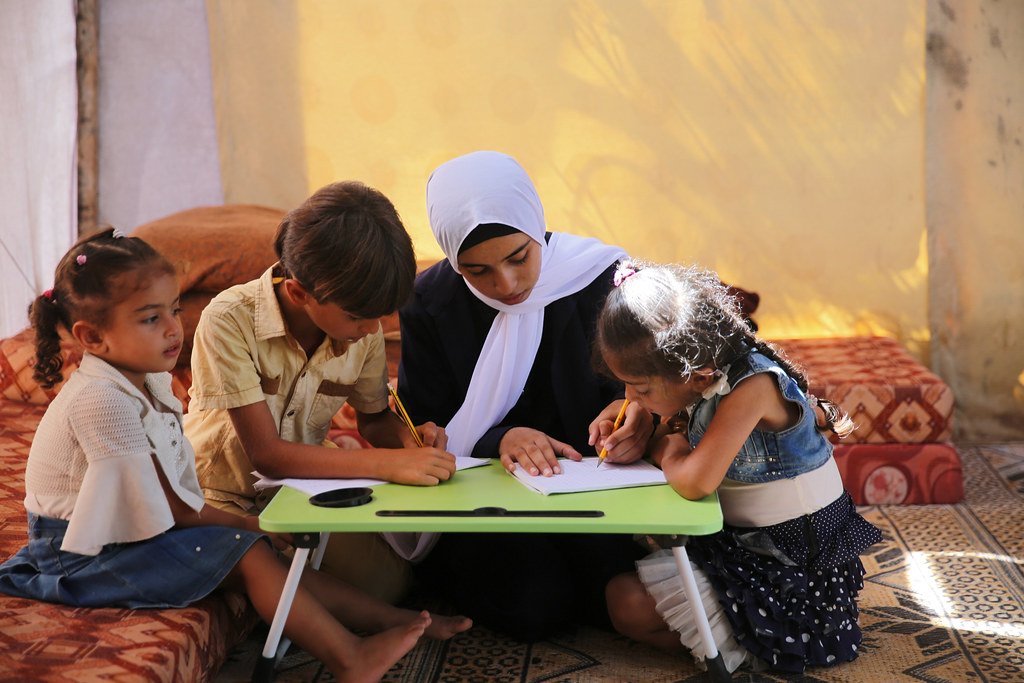In a world where opportunities often hinge on access to education, the children of Gaza face immense challenges that have left their future uncertain. With ongoing conflict, limited resources, and economic hardships, education has become both a beacon of hope and a fundamental human right under threat. This article delves into the profound significance of education in Gaza and how your support can make a tangible difference in the lives of children, shaping a more hopeful and prosperous future.
The Current State of Education in Gaza
To understand the importance of supporting education in Gaza, we must first examine the existing challenges. The Gaza Strip, home to over two million Palestinians, has endured years of conflict and an ongoing blockade that has decimated infrastructure, including schools and educational facilities. According to UNICEF and other humanitarian organizations, many children in Gaza are deprived of quality education due to damaged school buildings, overcrowded classrooms, and a lack of necessary learning materials.
The statistics are alarming: over 500,000 students are enrolled in Gaza’s schools, but the conditions are far from ideal. With many schools operating in double or even triple shifts to accommodate students, the quality of education suffers significantly. Teachers, often underpaid and overworked, struggle to provide adequate attention to each child. Furthermore, the psychological trauma caused by repeated exposure to violence affects students’ ability to concentrate and perform well academically. These factors combined paint a grim picture of the educational landscape in Gaza, highlighting the dire need for support and reform.
Why Education Matters
Education is more than just a pathway to employment; it is a critical tool for breaking the cycle of poverty, promoting peace, and fostering resilience. For the children of Gaza, education represents a means of empowerment and a way to imagine a life beyond the confines of conflict and deprivation. It provides them with the skills and knowledge needed to rebuild their communities and contribute positively to society.
1. Breaking the Cycle of Poverty
One of the most significant impacts of education is its potential to break the cycle of poverty. In Gaza, where unemployment rates are among the highest in the world, education equips children with the skills necessary to secure better job opportunities in the future. Literacy and numeracy, critical thinking, and vocational training can open doors to employment in sectors that are less affected by conflict, such as technology or remote work. By investing in education, we invest in a generation capable of transforming their economic realities.
2. Promoting Mental Health and Stability
Education also plays a crucial role in promoting mental health and emotional stability. For children who have experienced trauma, schools provide a sense of normalcy and structure. They offer a safe space where children can form social bonds, engage in creative activities, and receive psychological support. Educational programs that incorporate trauma-informed teaching methods can help students process their experiences and build resilience. This aspect of education is often overlooked but is vital for the well-being of Gaza’s youth.
3. Empowering Girls and Promoting Gender Equality
In regions affected by conflict, girls are often the most vulnerable when it comes to educational access. In Gaza, cultural and economic barriers sometimes prevent girls from continuing their education. By supporting educational initiatives that focus on gender equality, we ensure that girls have the same opportunities as boys to learn and thrive. Educated girls are more likely to become empowered women who can advocate for themselves, contribute to their communities, and inspire future generations.
4. Fostering Peace and Understanding
Education fosters critical thinking and promotes values such as tolerance, empathy, and conflict resolution. By learning about history, cultures, and human rights, children are more likely to grow into adults who advocate for peace and coexistence. This is particularly important in Gaza, where the younger generation has the potential to shape a future based on understanding rather than animosity. Schools that offer peace education and extracurricular activities focused on collaboration can sow the seeds of a more harmonious society.
The Challenges Facing Education in Gaza
Despite the clear benefits, numerous obstacles stand in the way of providing quality education in Gaza. These challenges include:
- Infrastructure Damage: Many school buildings have been damaged or destroyed due to repeated military operations. Rebuilding these structures requires significant financial resources and international support.
- Overcrowded Classrooms: The high number of students often leads to overcrowded classrooms, where teachers struggle to give individual attention and provide a conducive learning environment.
- Psychological Trauma: The psychological impact of living in a conflict zone cannot be underestimated. Children frequently experience anxiety, depression, and post-traumatic stress, which hinder their academic performance.
- Lack of Resources: Basic educational materials, such as textbooks, computers, and laboratory equipment, are often in short supply. The blockade on Gaza has also made it difficult to import essential resources.
- Teacher Shortages: Many teachers in Gaza face low salaries and difficult working conditions, leading to a shortage of qualified educators. Training and retaining skilled teachers is an ongoing challenge.
How You Can Make a Difference
While the challenges are daunting, the collective efforts of individuals, organizations, and governments can create meaningful change. Here are some ways you can contribute to improving education in Gaza:
1. Support Local and International Organizations
Numerous organizations work tirelessly to support education in Gaza. By donating to reputable NGOs like UNRWA, Save the Children, or local charities focused on education, you can help provide school supplies, fund teacher training programs, or support the reconstruction of damaged schools. Even small donations can have a significant impact when pooled together.
2. Sponsor a Child’s Education
Sponsoring a child’s education is a direct way to make a difference. Sponsorship programs often cover the cost of tuition, uniforms, books, and other essential items. This not only provides immediate educational opportunities but also instills hope and motivation in the child and their family.
3. Advocate for Educational Rights
Raising awareness about the educational crisis in Gaza is crucial. Use your voice to advocate for policies that prioritize the rights of children to receive a quality education, regardless of the political and economic situation. Social media campaigns, petitions, and engagement with policymakers can amplify the call for international support.
4. Volunteer Your Skills
If you have expertise in education, mental health, or community development, consider volunteering your time or skills. This could be through online tutoring, mentoring teachers, or developing educational content that addresses the specific needs of Gaza’s children.
Success Stories: The Impact of Education Initiatives
Despite the difficulties, there are inspiring stories of resilience and success that highlight the transformative power of education. For example, some schools in Gaza have implemented innovative teaching methods that focus on interactive and experiential learning. Students engaged in these programs have shown remarkable progress, both academically and emotionally. Additionally, vocational training centers have empowered youth to start small businesses, providing a sense of purpose and economic stability.
Programs that combine education with psychosocial support have also been effective. Children who participate in art therapy, sports, and other extracurricular activities have demonstrated improved mental health and academic performance. These success stories are a testament to the fact that, with the right support, the children of Gaza can overcome adversity and achieve their potential.
Conclusion: Building a Brighter Future Together
Education is a fundamental right that every child deserves, and for the children of Gaza, it represents a path to a brighter future. By supporting education, we empower a generation to break free from the constraints of poverty and conflict. We give them the tools to dream, innovate, and contribute to a more peaceful world.
Your role in this journey is crucial. Whether through donations, advocacy, or volunteering, your support can help transform the educational landscape in Gaza. Together, we can build a future where every child has the opportunity to learn, grow, and thrive. Let us invest in education today, for it is the most powerful weapon we have to change the world and bring hope to those who need it most.




